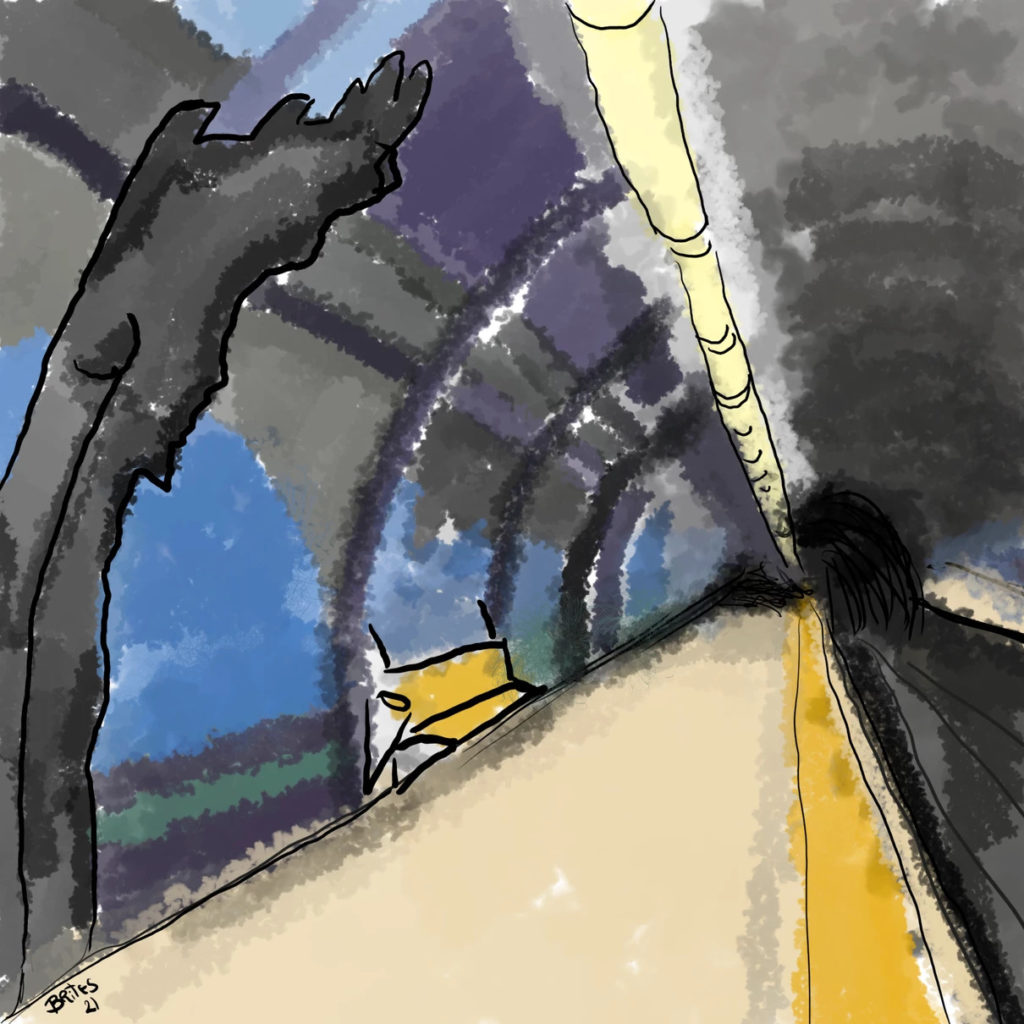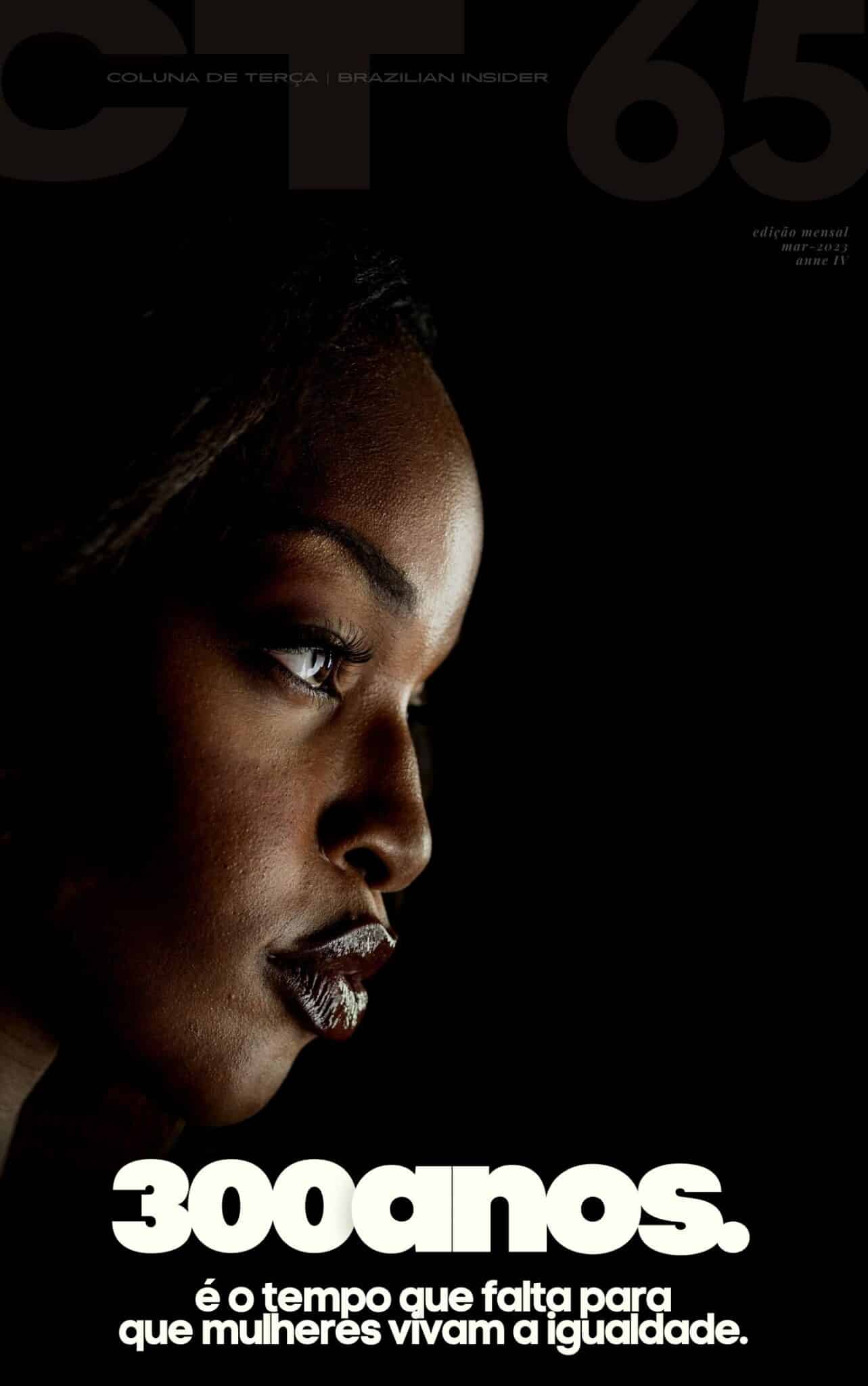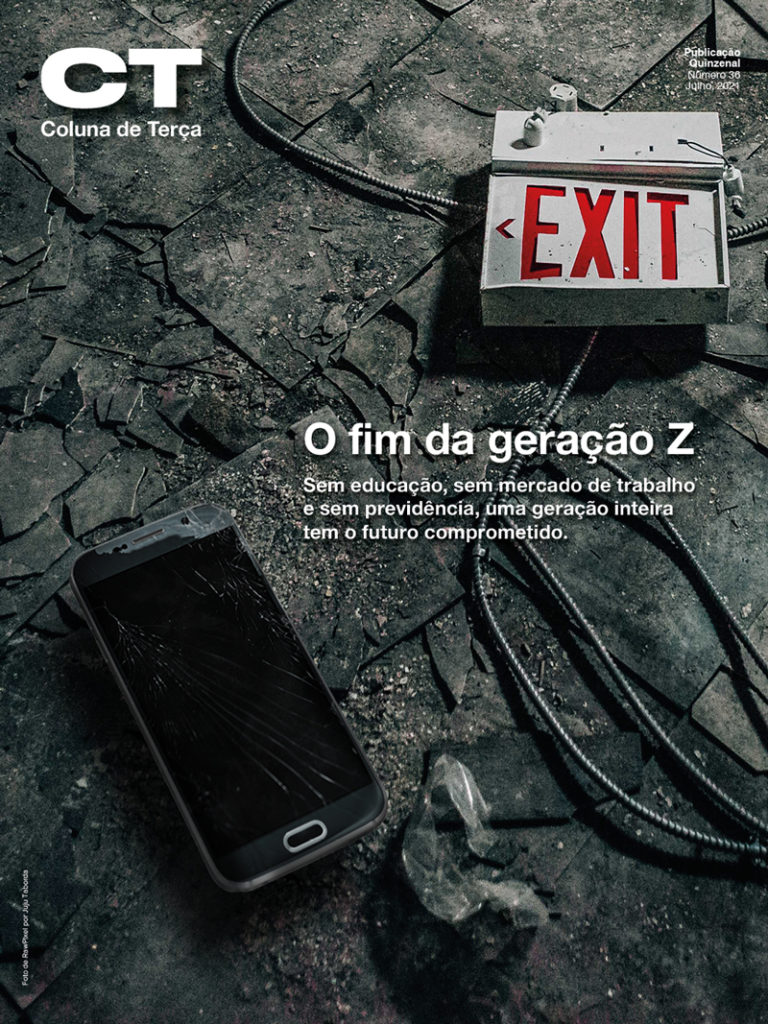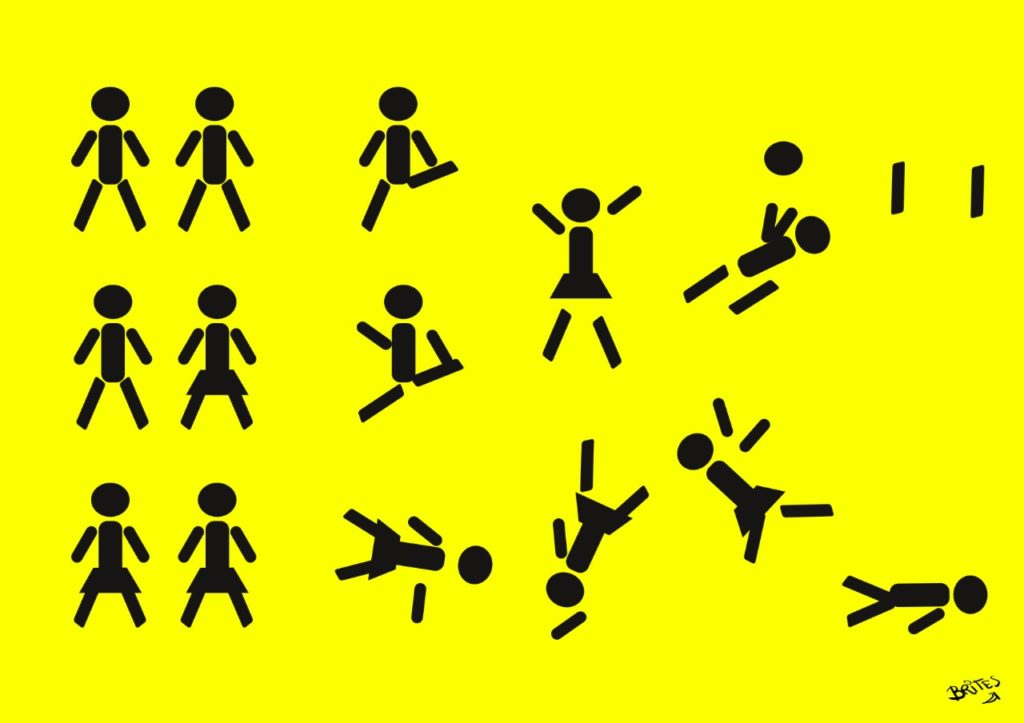
To migrate is to have courage!
Leitura: 4 minIllustration by: Claudio Brites
As soon as I arrived in Lisbon from Guarulhos, I went to walk around the city, and report to the immigration authorities.
I arrived on December 5th, 2018. On Dec 7th, I left very early in the morning, with my partner, whom you can see in the picture, and we took the subway for the first time in this country.
The subway was smaller than those I’ve known in Rio and São Paulo. At the stations, there were no advertisements like in ours. It was a visually clean environment, but that day I found it so empty.
You get used to the visual pollution from Coca Cola, McDonald’s, supermarkets, everything one can sell, while in the subway.
Not here.
Some stations seem to have been abandoned for decades. Walls in a faded blue, old paint, infiltrations, and with the pandemic, everything is emptier. Subway ticket sales dropped by half, so they say.
It was very early, about 6 a.m., our bodies still feeling the jet lag, so it was like 3 a.m. for us.
That neighborhood called Telheiras reminds me a lot of Jacarépaguá. But empty. Portugal has fewer inhabitants. We live in a country of hundreds of millions. Rio de Janeiro has more people than the entire country of Portugal.
I remember the smell of Lisbon in the morning.
The smell of the plants, in the morning – fucking cold.
I arrived in December, during winter.
It was 6, 7 degrees Celsius. Three days ago I was living immersed in 40 degrees. Imagine my despair. The coat I bought in a second-hand store in Florianópolis could not stand the cold here. Our jackets are made of papier-mâché.
I turned on Google Maps and walked to the subway. We bought the tickets and got off at this station, named Parque.
I didn’t know, at that time, that one day I would live near there. And that Parque Eduardo VII would be such a common place for me. I didn’t even know where I was going to live, actually. I was staying with a Portuguese family, who kindly hosted us and gave us shelter and food.
So I walked through this station, around 8 a.m., and it was totally deserted. What a bizarre scene! If it were Pavuna Line 2, in Del Castilho (Rio’ suburbs), it would be so crowded.
I walked up the station, looking into the blue tiles, the marine motifs, and it looked like being inside a big aquarium. There was a map drawn on the wall, and on it, there was Brazil. I kept looking at Brazil drawn there. I was no longer in Brazil. What a different feeling!
And at the same time, I no longer had any documents.
I was in an undocumented condition.
I didn’t have a residence permit, an identity number, a citizen card, nothing. Just my passport could certify who I was. But I was alienated from that society.
I looked at my Brazilian documents and thought.
Here I am invisible.
Those, who come with a visa, arrive through the front door.
Not us.
So we got out into the street, a freezing wind blowing, and went to the immigration authority, the SEF, Portuguese Immigration and Borders Service.
Now I was a foreigner. I had crossed the border.
I stood in a line, and there I felt a click inside… I realized that in line there were Africans, Arabs, Indians, Chinese, Brazilians. A huge line formed very early, before sunrise, for the undocumented to get documents. Papers, signatures, stamps, without which they were not “legal”. And not being legal, they had no entry into society.
It took us about two years to get the documents. Today we have them all. I remember, the day I got my Citizen Card (a Portuguese residence permit), I kept looking at it and at my RG, the ID issued in São Paulo. Two years later, I was a civil, registered again.
This seems small.
But only when you stay at the margin of society, undocumented, precariously, for almost two years, do you understand how this can affect your head. Some people have no papers for eight, ten years. Some die without them. Some are deported.
The bureaucracy kills the human.
Whenever I pass the Parque, and enter, I remember that day.
A few seconds before I stepped out into the streets of Lisbon, and crossed the city, for the very first time. That morning, without documents, after going through immigration, we sat on a bench in the Avenida da Liberdade and had coffee with milk, and a bagel. I was happy, hand in hand with my partner, that day. It was a cold day, but sunny. Lots of people on the streets, everything was new to us. Every place I stepped on was a place that I got to know for the first time. And not for sightseeing. I would have to learn the paths, I was going to live there.
That is why every time I go back to this station, I go back to that day. To that moment. Without Brazil. Without documents. And totally left to our own fate.
To migrate is to have courage!










